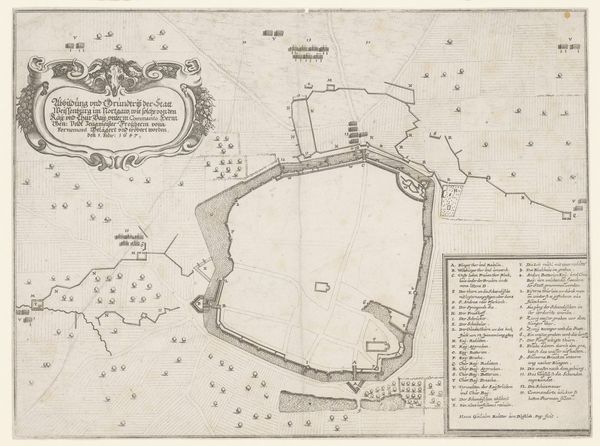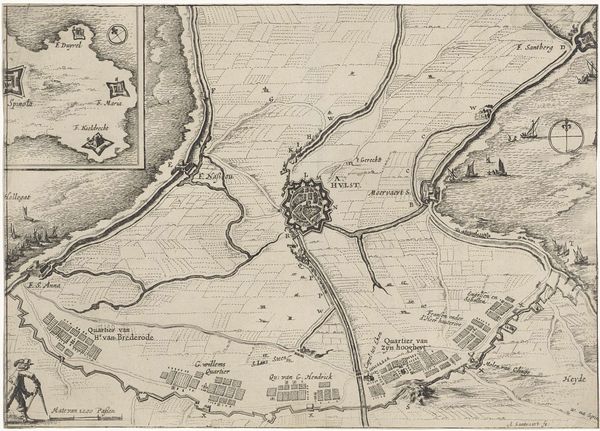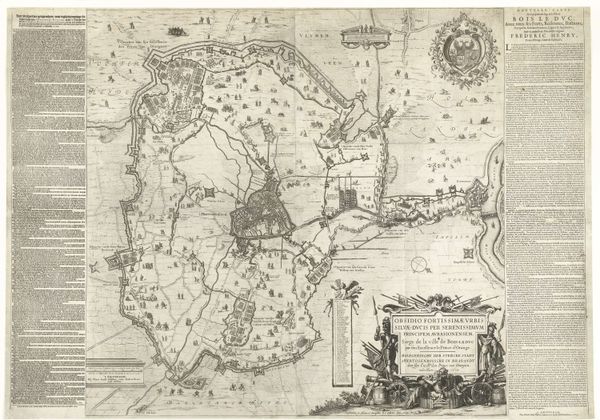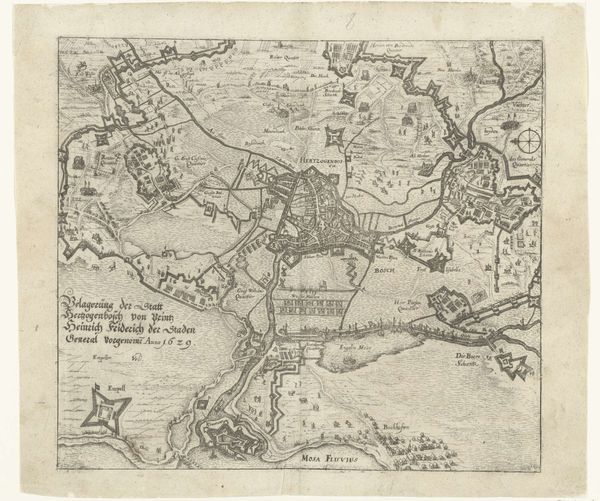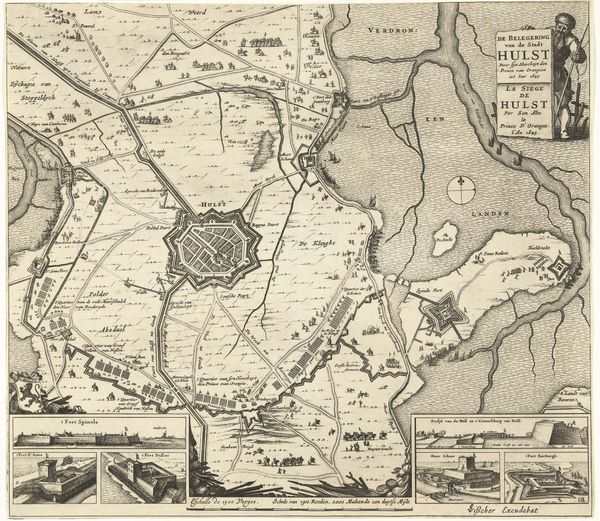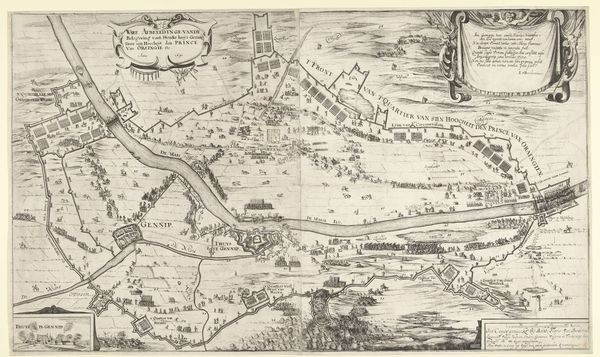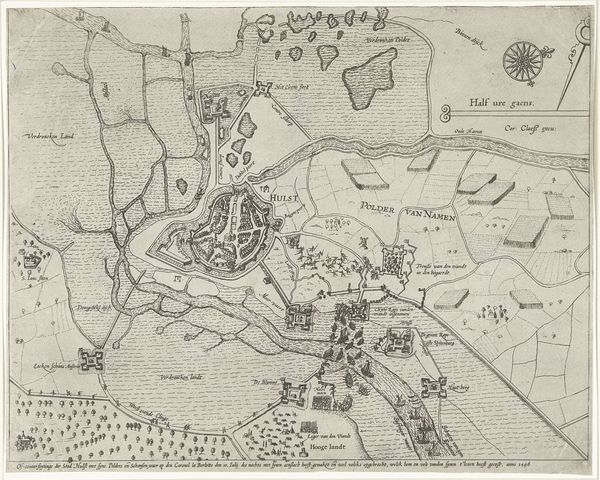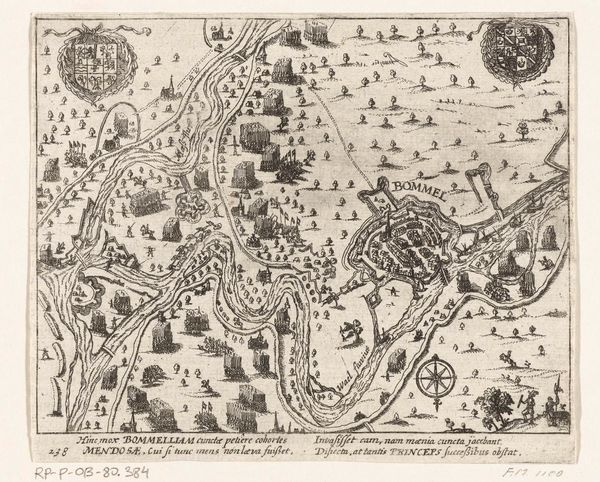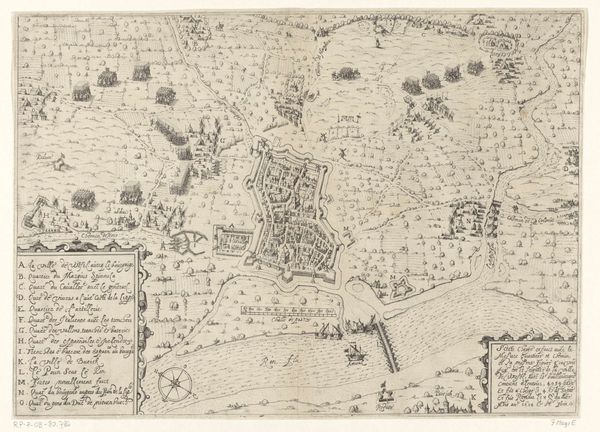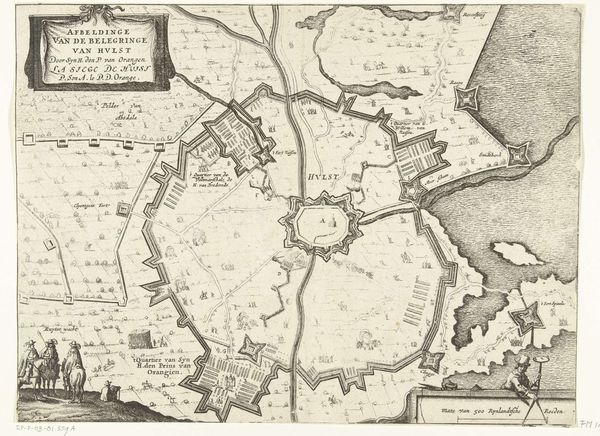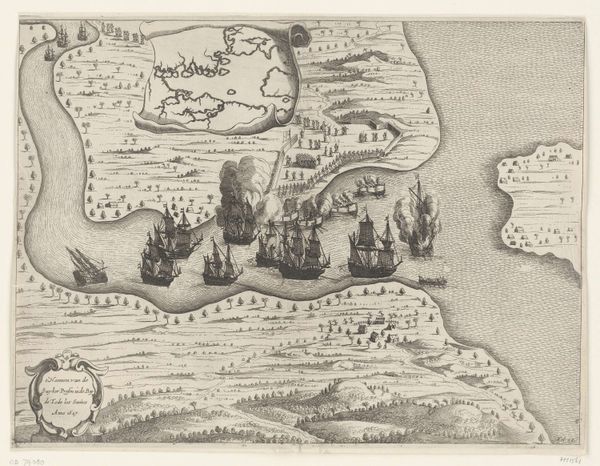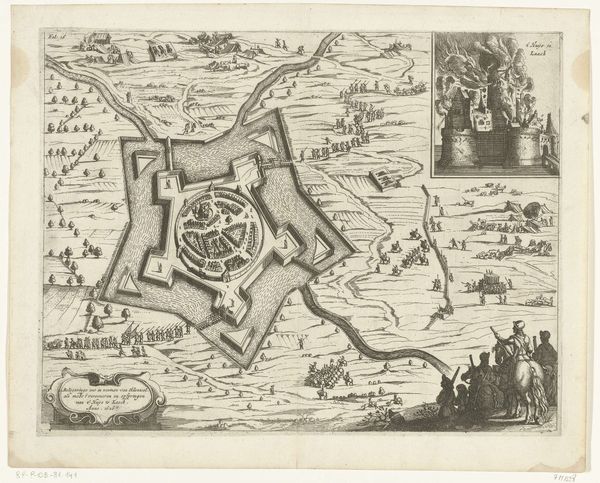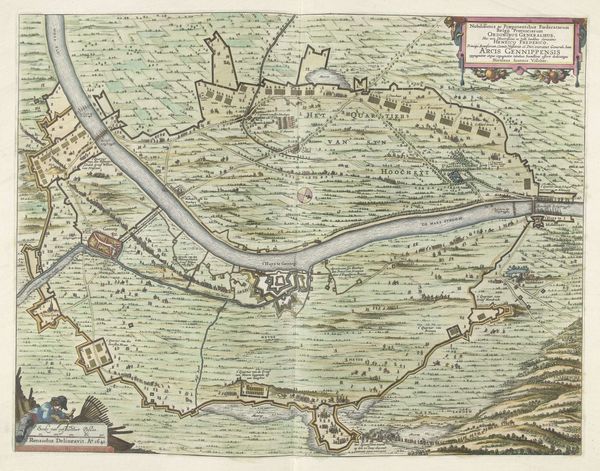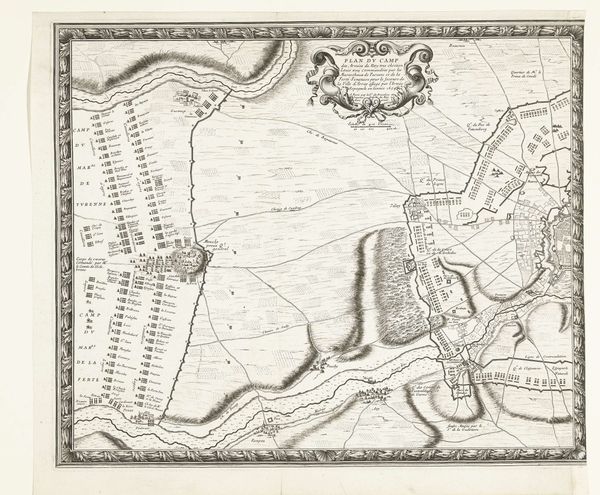
drawing, print, ink, engraving
#
pen and ink
#
drawing
#
mechanical pen drawing
# print
#
pen illustration
#
pen sketch
#
old engraving style
#
landscape
#
ink
#
sketchwork
#
pen-ink sketch
#
pen work
#
cityscape
#
history-painting
#
storyboard and sketchbook work
#
engraving
#
initial sketch
Dimensions: height 178 mm, width 190 mm
Copyright: Rijks Museum: Open Domain
Editor: This engraving, "Siege of Ypres, 1649," rendered in ink by an anonymous artist, presents an intriguing aerial view. The composition, a bird’s eye perspective of fortifications, fields, and minuscule figures, conveys both a sense of order and immense conflict. What narratives do you find embedded in this historical landscape? Curator: What strikes me is how this image functions as a tool of power. Consider, who was meant to view this map, and what impact would it have? Maps weren't just neutral records; they served the interests of those commissioning them, influencing perception and justifying actions. Can we interpret this meticulous detail as a form of control, visualizing dominance? Editor: I see your point. It's less an objective view and more of a carefully constructed argument. I wonder how the artistic choices, like the seemingly endless ranks of soldiers, would affect public sentiment? Curator: Exactly. Consider the impact on the local population. Whose voices are missing? The people living in this region would not have experienced the “grand” narrative in this way. And what is the emotional register of such maps? They may be deployed, in fact, to produce or even foreclose affect. How might a feminist lens reframe this narrative? Editor: So, by focusing on absences—the voices, the feelings, the individual human costs—we gain a more complete, and likely more accurate, understanding of the siege itself and this image's role in its interpretation. Thank you, this helps challenge how I think of historical depictions. Curator: Indeed, examining art through an intersectional lens enables us to recognize the diverse social and political dimensions and impacts inherent in the images we consume.
Comments
No comments
Be the first to comment and join the conversation on the ultimate creative platform.
